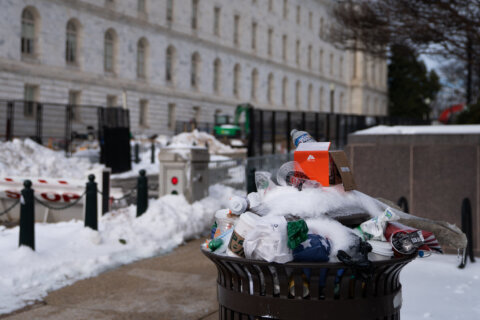D.C. is officially outlawing the sale of flavored tobacco products and menthol cigarettes across the city.
Mayor Muriel Bowser issued a statement after signing the bill, which was passed last month by the D.C. Council.
“We know that Black residents are disproportionately affected by tobacco use, and flavored tobacco, including menthol, continues to have a particularly insidious effect on our community,” Bowser said. “Today, we take a hugely impactful step to reducing tobacco initiation and addiction in Washington, D.C.”
Members of the public health community also support the new law.
“I think this is a great move for the District,” said Dr. Anjali Malik, a breast imaging radiologist at Washington Radiology and member of the Medical Society of D.C.
Malik said tobacco products can cause all kinds of cancers, and believes the Flavored Tobacco Product Prohibition Amendment Act of 2021 also goes beyond reducing the health risk.
Among Black smokers, Malik said the Centers for Disease Control and Prevention found 75% purchase menthols.
“Our residents have major health disparities, particularly in the last year we’ve seen with the COVID-19 outbreak but also with cardiovascular disease and diabetes,” Malik said. “This is a huge win for the District’s residents.”
But critics are worried about the negative impact on young people, who are generally targeted by companies that sell flavored tobacco, as well as communities of color.
During the June 29 legislative session, in which the D.C. Council approved the ban, Ward 5 Council member Kenyan McDuffie was especially worried about the addition of the menthol cigarette portion of the law.
McDuffie predicts it could lead to a black market that would shape enforcement by drawing in police.
Malik believes the health benefits outweigh other concerns and is optimistic about the law’s future enforcement.
“This is certainly going to impact communities of color, hopefully, in a positive way,” Malik said. “Hopefully the measure is to avoid this being a policing effort, and more of a regulatory effort will avoid over-policing in a population that already suffers from that.”
In her statement, Bowser also said, “reducing the use of tobacco is a health equity issue.”








